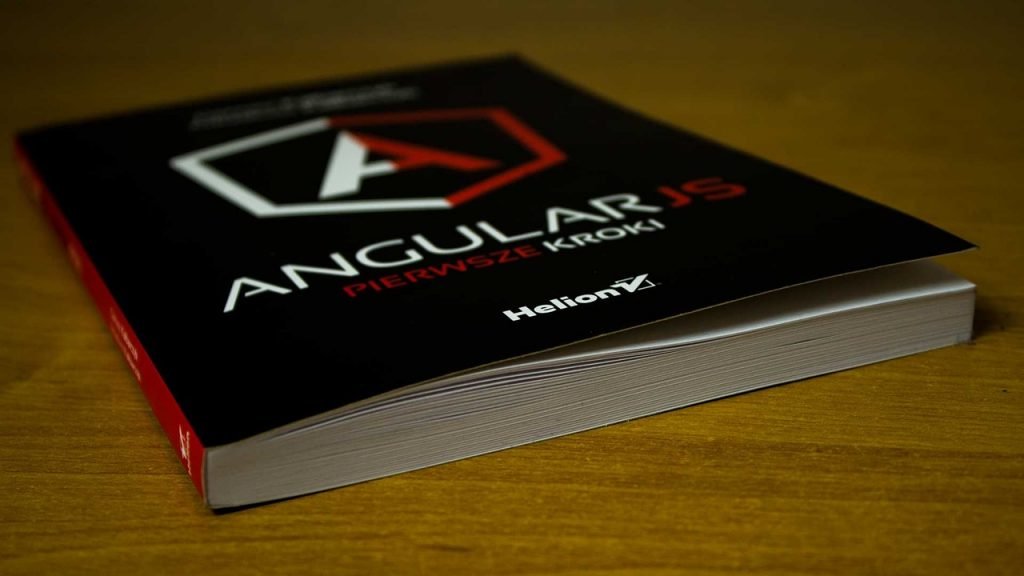Flask is a lightweight and efficient Python web application framework created by Armin Ronacher. It is designed to allow developers to quickly start building complex applications. In this article, we have curated a list of the best Python Flask projects for all skill levels, from beginner to advanced. These projects will help you enhance your data science and machine learning skills while building amazing Flask-based projects.
Key Takeaways
- Working on coding projects in Flask can boost your skills in web development.
- Flask offers a lightweight and efficient framework for building web applications.
- Python Flask projects are available for all skill levels, from beginner to advanced.
- By working on Flask projects, you can gain hands-on experience and enhance your data science and machine learning skills.
- Flask provides flexibility, simplicity, and scalability, making it a great choice for web development.
Python Coding Projects with Source Code for Beginners
If you are a beginner looking to learn Flask programming, working on Python projects with source code can be a great way to get started. These projects provide step-by-step instructions and explanations, making it easy for beginners to understand and learn Flask development. By working on these projects, you can gain hands-on experience and build a solid foundation in Flask programming.
Here are some Python Flask project examples that are specifically designed for beginners:
- Task Manager: Create a simple task manager application where users can add, update, and delete tasks.
- Weather App: Build a weather application that fetches and displays real-time weather data from an API.
- To-Do List: Develop a to-do list application that allows users to manage their tasks and mark them as complete.
These projects cover the basics of Flask programming, including routing, template rendering, and handling user inputs. They are a great starting point for beginners to gain practical experience and learn the fundamentals of Flask development.
“Working on Python projects with source code is a fantastic way for beginners to learn Flask programming. These projects provide hands-on experience and step-by-step instructions, making it easy to grasp the fundamentals of Flask development.”
Python Projects with Source Code for Intermediate
Intermediate developers looking to enhance their Flask skills can benefit from working on more complex projects. These projects go beyond the basics and cover advanced topics such as Flask project structure and app tutorials. By diving into these projects, intermediate developers can expand their knowledge and expertise in Flask development.
One notable project in this category is the Online Bookstore. This project focuses on building a fully functional e-commerce website for selling books. It covers essential elements such as user authentication, database management, and payment integration. The project also provides step-by-step tutorials on setting up the Flask project structure, implementing various routes, handling forms, and managing the database. By working on this project, intermediate developers can gain in-depth knowledge of creating robust Flask applications.
“The Online Bookstore project helped me take my Flask skills to the next level. It provided a hands-on experience in building a complete web application from scratch. The tutorials were easy to follow, and the project structure allowed me to understand the different components of Flask. I highly recommend this project for intermediate developers looking to enhance their Flask skills.”
Another project perfect for intermediate developers is the Event Management System. This project focuses on creating a web application for managing events, including registration, ticketing, and event information. It covers topics such as handling user input, managing event data in a database, and generating dynamic content. The project provides detailed tutorials on implementing Flask routes, using templates for a consistent user interface, handling forms, and integrating with a database. By working on this project, intermediate developers can gain valuable experience in building interactive Flask applications.
Project Comparison
| Project | Features | Difficulty |
|---|---|---|
| Online Bookstore | User authentication, database management, payment integration | Intermediate |
| Event Management System | Event registration, ticketing, dynamic content generation | Intermediate |
As shown in the comparison table above, both projects offer unique features and challenges for intermediate developers. The Online Bookstore project focuses on e-commerce functionality, while the Event Management System project revolves around event management. Both projects provide detailed tutorials and cover essential aspects of Flask development. Intermediate developers can choose the project based on their interests and goals to further enhance their Flask skills.
Advanced Python Projects with Source Code
As experienced developers, we understand the importance of challenging ourselves and pushing the boundaries of our skills. That’s why in this section, we have curated a list of advanced Python projects with source code specifically geared towards enhancing your Flask development abilities. These projects not only delve into advanced concepts such as Flask application development and project structure but also provide practical examples for you to explore and learn from.
One of the key advantages of working on advanced Flask projects is the opportunity to gain a deeper understanding of Flask’s capabilities. By exploring projects that cover complex topics like Flask application development, you’ll be able to enhance your problem-solving skills, expand your knowledge of Flask’s architecture, and gain the confidence to tackle more complex development tasks.
Furthermore, these advanced projects offer a chance to explore advanced techniques and best practices in Flask development. By working on projects that emphasize project structure, you’ll learn how to organize your Flask applications effectively, making them more maintainable and scalable over time. This understanding of project structure will enhance your ability to collaborate with other developers and work on larger-scale Flask applications.
| Project | Description | Key Learnings |
|---|---|---|
| Flask eCommerce Store | Create a fully functional eCommerce store using Flask, integrating payment gateways, product listings, and order management. | – Integrate Flask with popular eCommerce frameworks – Manage user sessions and authentication – Implement secure payment processing |
| Flask Social Network | Build a social networking platform using Flask, allowing users to create profiles, connect with friends, and share content. | – Implement user authentication and authorization – Design RESTful APIs for user interactions – Utilize Flask’s template engine for dynamic content rendering |
| Flask Data Visualization Dashboard | Create an interactive data visualization dashboard using Flask, incorporating popular data visualization libraries and frameworks. | – Integrate Flask with data visualization libraries – Retrieve data from sources such as databases or APIs – Implement dynamic updating of visualizations based on user interactions |
These advanced projects will not only enhance your Flask development skills but also provide you with portfolio-worthy projects that showcase your expertise to potential employers or clients. By diving into the intricacies of Flask application development and project structure, you’ll be well-equipped to take on any Flask project that comes your way.
Key Components of a Flask Project
When building a Flask project, it is crucial to understand the key components that make up the framework. These components play a vital role in creating a successful Flask application. Let’s take a closer look at each of these components:
Flask Routes
Routes are essential in Flask as they define the URL patterns and the corresponding functions to handle HTTP requests. They determine how the user interacts with the application and provide the necessary endpoints for data retrieval and manipulation.
Flask Templates
Templates in Flask are powered by the Jinja2 templating engine. They allow for the separation of the presentation layer from the application logic. Templates enable developers to create dynamic HTML pages by combining HTML syntax with Python code, making it easier to generate and display data.
Flask Forms
Forms in Flask provide a way to handle user input, validate data, and process form submissions. Flask-WTF is a popular extension that simplifies form handling in Flask applications. It allows developers to define form fields, apply validation rules, and handle form submissions with ease.
Flask Database
Database integration is a crucial component of most web applications, and Flask provides support for various databases through extensions like Flask-SQLAlchemy and Flask-MongoEngine. These extensions enable efficient storage and retrieval of data, making it easier to build fully functional and data-driven web applications.
Flask Static Files
Static files, such as CSS, JavaScript, and images, are essential for the front-end appearance and functionality of a Flask application. Flask allows developers to organize and serve static files easily, enhancing the user experience and making the application visually engaging.
Understanding these key components of a Flask project is vital for building robust and efficient web applications. By utilizing routes, templates, forms, database integration, and static files effectively, developers can create feature-rich and visually appealing Flask applications.
Deploying Flask Projects
Once you have completed your Flask project, you will want to deploy it for the world to see. There are several deployment options available for Flask projects, each with its own advantages and features.
Heroku
One popular option for deploying Flask projects is Heroku. Heroku is a cloud platform that simplifies the deployment process, allowing you to deploy your Flask application with ease. It provides a user-friendly interface and supports popular programming languages, including Python. Heroku also offers scalability, allowing your application to grow as needed. With Heroku, you can deploy your Flask project quickly and efficiently.
PythonAnywhere
Another option for deploying your Flask project is PythonAnywhere. PythonAnywhere is a hosting service specifically designed for Python web applications. It provides a simple and intuitive interface that allows you to easily deploy your Flask application. PythonAnywhere also offers features such as automatic backups, scheduled tasks, and easy database integration. With PythonAnywhere, you can deploy and manage your Flask project with ease.
AWS Elastic Beanstalk
If you are looking for a scalable hosting service, AWS Elastic Beanstalk is a great option for deploying your Flask project. Elastic Beanstalk is a fully managed service from Amazon Web Services that makes it easy to deploy and manage applications in the AWS cloud. It supports multiple programming languages, including Python, and provides auto-scaling capabilities. With AWS Elastic Beanstalk, you can deploy your Flask application and seamlessly handle increased traffic and workload.
With these deployment options, you can choose the one that best fits your needs and deploy your Flask project with confidence. Whether you prefer the simplicity of Heroku, the user-friendly interface of PythonAnywhere, or the scalability of AWS Elastic Beanstalk, you have the tools to showcase your Flask application to the world.
Advantages of Flask Projects
Flask projects offer several advantages that make them a popular choice for building web applications. Whether you are a beginner or an experienced developer, Flask provides a range of benefits that contribute to its appeal.
Flask’s simplicity allows developers to focus on the core logic of their applications without being burdened by excessive boilerplate code. The lightweight nature of Flask makes it easy to understand and work with, especially for those new to web development. With Flask, you can quickly get started and build functional applications in a streamlined manner.
Flexibility is another key advantage of Flask. Unlike some other web frameworks, Flask allows developers to choose the tools and libraries that best suit their needs. This freedom enables developers to create personalized web applications that align with their specific requirements and preferences.
Flask is known for its user-friendly design, making it easy to learn for developers of all skill levels. The framework’s documentation is extensive and well-maintained, providing ample resources for learning and troubleshooting. Additionally, the Flask community is large and supportive, fostering collaboration and knowledge-sharing among developers.
Lastly, Flask offers scalability. As your application grows, Flask allows you to add features and components seamlessly. This scalability ensures that your Flask project can evolve and adapt to meet the changing needs of your users and business.
Coding Projects in Flask: Enhancing Your Web Development Skills
Flask is a powerful Python web application framework that offers a range of coding projects to boost your skills and enhance your web development abilities. Whether you are a beginner, intermediate, or advanced developer, working on Flask projects can provide valuable hands-on experience and help you create impressive web applications.
For beginners, there are Python Flask projects with source code that provide step-by-step instructions and explanations. These projects are designed to make learning Flask programming easier and more accessible, allowing beginners to gain a solid foundation in Flask development.
If you are an intermediate developer looking to further enhance your Flask skills, there are projects available that cover advanced topics such as Flask project structure. These projects offer detailed tutorials on building Flask applications with various functionalities, allowing you to expand your knowledge and expertise in Flask development.
Advanced developers can challenge themselves with advanced Python projects in Flask. These projects push the boundaries of Flask development and cover concepts such as Flask application development and project structure. By working on these projects, advanced developers can explore advanced techniques and further enhance their Flask skills.

Table: Overview of Flask Project Levels
| Level | Description |
|---|---|
| Beginner | Projects with step-by-step instructions and explanations for beginners. |
| Intermediate | Projects covering advanced topics like Flask project structure. |
| Advanced | Projects pushing the boundaries of Flask development. |
Working on coding projects in Flask not only allows you to enhance your skills but also provides valuable experience in building web applications. So why not start your next coding project in Flask today and take your web development skills to the next level?
Boost Your Skills with a Coding Project in Flask
Flask is an incredible framework for web development, and working on coding projects in Flask is a fantastic way to enhance your skills. Whether you are a beginner diving into Flask for the first time or an experienced developer looking to expand your knowledge, Flask offers a wide range of projects tailored to different skill levels.
By working on a coding project in Flask, you not only gain practical experience but also get to explore the vast capabilities of this lightweight and efficient Python framework. From building simple web applications to crafting complex projects, Flask provides the flexibility and simplicity you need to bring your ideas to life.
Immerse yourself in the Flask ecosystem and learn by doing. Take on a coding project in Flask and witness the transformation of your skills as you create impressive web applications. Whether it’s a personal project or an opportunity to showcase your talents, Flask will undoubtedly elevate your web development abilities to new heights.
FAQ
What is Flask?
Flask is a lightweight and efficient Python web application framework.
Who created Flask?
Flask was created by Armin Ronacher.
What is Flask designed for?
Flask is designed to allow developers to quickly start building complex applications.
Are there any Python Flask projects for beginners?
Yes, we have compiled a list of Python projects with source code that are specifically designed for beginners.
Can intermediate developers enhance their Flask skills with projects?
Yes, we have selected Python projects with source code that are suitable for intermediate developers.
Are there advanced Python projects available for Flask development?
Yes, we have a selection of advanced Python projects with source code for advanced developers.
What are the key components of a Flask project?
The key components of a Flask project include routes, templates, forms, database integration, and static files.
How can I deploy my Flask project?
There are several deployment options available for Flask projects, including Heroku, PythonAnywhere, and AWS Elastic Beanstalk.
What are the advantages of Flask projects?
Flask projects offer advantages such as simplicity, flexibility, ease of learning, a supportive community, and scalability.
How can I boost my skills with a coding project in Flask?
By working on Flask projects, you can gain hands-on experience, enhance your web development skills, and create impressive web applications.
Source Links








